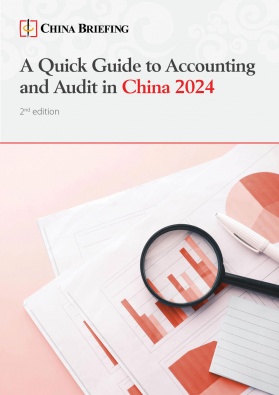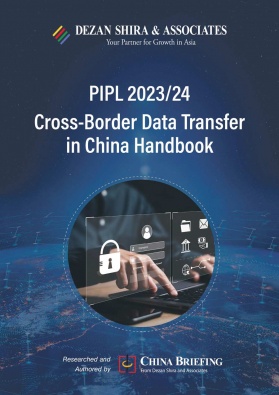China’s Foreign Minister Wang Yi to Visit Australia for Trade and Technology Talks
Australia is expecting a visit from China’s foreign minister, Wang Yi, in late March. This would make it the highest-ranking Chinese official to visit Australia since 2017. The bilateral meeting of foreign ministers will also set the stage for Premier Li Qiang’s upcoming journey to Australia later in the year.
UPDATE (March 15, 2024): China’s Minister of Foreign Affairs, Wang Yi, is set to embark on a key diplomatic mission to New Zealand and Australia from March 17 to March 21, 2024. This visit comes following invitations from New Zealand’s Deputy Prime Minister and Foreign Minister, Peters, and Australian Foreign Minister Penny Wong. A pivotal aspect of Wang Yi’s agenda will be his attendance at the seventh round of China-Australia Diplomatic and Strategic Dialogue (hereinafter, “the Dialogue”), scheduled during his stay in Australia. The Dialogue is anticipated to tackle various bilateral and regional issues.
As reported by SCMP on February 29, 2024, Australia has extended an official invitation to China’s foreign minister, Wang Yi, marking a significant development in the ongoing dialogue between the two nations.
Scheduled for a two-day visit in the second half of March, Wang Yi’s trip arrives at a crucial time in bilateral relations between China and Australia. Following Prime Minister Anthony Albanese’s recent visit to China in November 2023, there have been discernible signs of improvement between the two countries.
Against this backdrop, the invitation reflects a concerted effort to address a range of contentious issues that have strained diplomatic ties in recent years.
Key negotiations
The upcoming discussions between China and Australia will center around critical issues that have the potential to shape the trajectory of their bilateral relations. The negotiation dynamics between these two countries are marked by a nuanced interplay of interests, priorities, and strategic imperatives.
Australia’s Department of Foreign Affairs and Trade (DFAT) is actively advocating for the lifting of sanctions on Australian wine and lobsters, which have strained trade relations between the two countries. Seeking sanctions relief underscores Australia’s efforts to alleviate economic pressures and facilitate bilateral trade and investment.
Concurrently, China is pressing Australia to commit to a new Science and Technology Agreement, aiming to foster collaborative efforts in areas of mutual interest. Despite challenges posed by the broader geopolitical context, China’s emphasis on scientific and technological cooperation reflects its acknowledgment of the benefits of engagement and partnership in addressing global challenges and promoting sustainable development.
The normalization of China-Australia relations
When Australian Prime Minister Anthony Albanese met with Chinese President Xi Jinping in Beijing on November 6, 2023, it marked the first visit by an Australian prime minister to China in seven years.
During their encounter at the Great Hall of the People, Xi declared that China and Australia had commenced on the right path of improvement, signifying a potential shift in their strained relations. Albanese echoed these sentiments, affirming Australia’s support for China’s growth and global engagement. Both sides intended the timing of the visit to coincide with the 50th anniversary of Australia’s establishment of diplomatic relations with Communist China, symbolizing a significant step towards normalization.
Indeed, leading up to the two leaders meeting, several significant developments have unfolded concerning trade and tariffs between Australia and China, underscoring a shift towards greater cooperation and normalization. The end of tariffs on Australian barley on August 5, 2023, marked a pivotal moment in trade relations. China’s decision to abolish the 80.5 percent tariffs alleviated longstanding tensions and provided a positive signal for the resumption of agricultural exports between the two countries. This move set a positive tone for further economic collaboration.
Subsequently, on October 22, 2023, China’s agreement to review the imposing of 218 percent dumping tariffs on Australian wine represented a significant step towards resolving trade disputes. The review process opened the door for potential reinstatement of Australian wine imports into the Chinese market and signaled a willingness to address economic grievances through diplomatic channels.
Australian winemakers eye China’s wine trade resurgence
Australian winemakers are optimistic about a potential resurgence in their trade with China, as they reportedly increased shipments to Hong Kong in February 2024 in anticipation of Beijing lifting tariffs on Australian imports.
Over the past two years, China has been gradually easing restrictions on various Australian goods as relations improve. Australian officials expect a review of wine tariffs initiated by Beijing last year to lead to their removal next month, fostering hopes of revitalizing a trade worth hundreds of millions of dollars.
The surge in wine shipments to Hong Kong reflects winemakers’ anticipation of a favorable outcome in the tariff review, with many preparing for increased exports to mainland China. Despite a decline in China’s overall wine consumption, Australian winemakers remain optimistic about recapturing a significant share of the market, buoyed by Chinese customers’ positive perception of Australian wine quality.
This article was originally published on March 6, 2024, and last updated on March 15, 2024.
About Us
China Briefing is written and produced by Dezan Shira & Associates. The practice assists foreign investors into China and has done so since 1992 through offices in Beijing, Tianjin, Dalian, Qingdao, Shanghai, Hangzhou, Ningbo, Suzhou, Guangzhou, Dongguan, Zhongshan, Shenzhen, and Hong Kong. Please contact the firm for assistance in China at china@dezshira.com.
Dezan Shira & Associates also has offices in Vietnam, Indonesia, Singapore, United States, Australia, Germany, Italy, India, and Dubai (UAE). We also have partner firms assisting foreign investors in The Philippines, Malaysia, Thailand, Bangladesh.
- Previous Article China’s 2024 Revision to M&A Regulations: New Filing Thresholds
- Next Article China’s Stock Exchanges Announce ESG Reporting Guidelines for Listed Companies
























